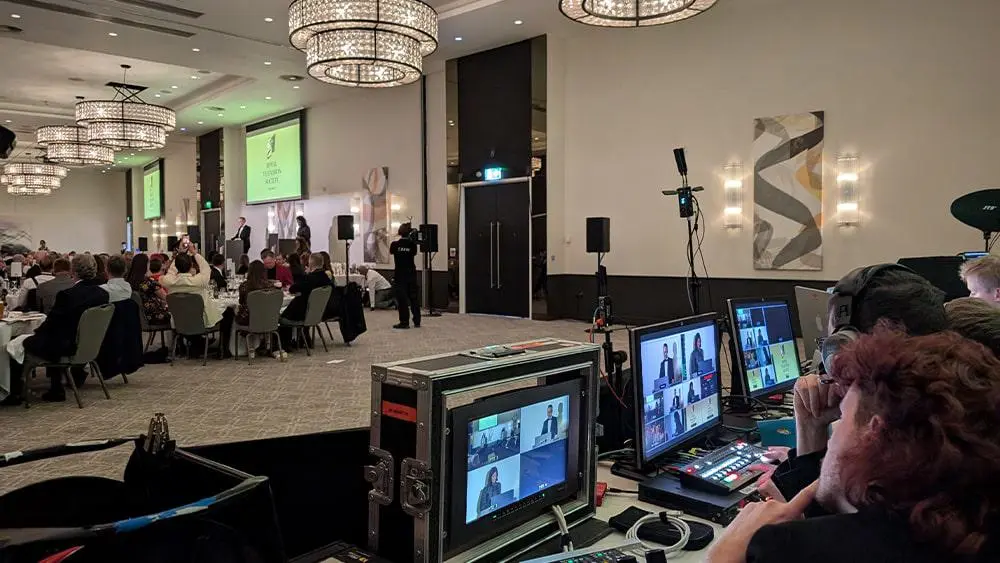
TV production students shine on the big stage
A talented team of BA (Hons) Television Production students successfully live-streamed the RTS Southern Awards.
15 April 2025
18 October 2022
...restricting visiting journalists from speaking with people in their own home is taking it too far.
Sports Journalism Course Leader, Will Cope, reacts to news of the media restrictions that will be in place during the FIFA Football World Cup.
Sadly, the news that international broadcasters are going to have restrictions imposed on them during next month’s men’s FIFA Football World Cup should come as no surprise to anyone.
The moment that Qatar was awarded the exhibition tournament 12 years ago, the build-up has been plagued by fears that the event would make headlines for non-sporting reasons.
First, it was moved from a summer to a winter tournament which interrupts the domestic seasons of most UEFA affiliated countries, which became a thorny issue.
Allegations of human rights violations in the Qatar are rife, as is the issue of mistreatment of migrant workers who have been building the many stadiums that will host the event.
Coupled with that, the country is not one that is known to be liberal in its views on the rights of LGBTQ+ people.
In essence, I don’t think any viewer, reader or listener would have a problem with TV crews or broadcast journalists having ‘restricted’ access to government buildings, hospitals, schools or places of worship. It is entirely common to get authority to record in such places the world over, and if that is restricted then fine. But restricting visiting journalists from speaking with people in their own home is taking it too far.
Journalism is about telling stories. It is based around reporters finding interesting people to help tell those stories. But, it must be based around fact, not fiction. War, as a subject, is, by definition, not really that interesting to many people. But, seeing life through the eyes of people who are scarred by war is a powerful way to educate those who don’t experience it. If you live in a country that denies you some basic civil liberties, it is important to be able to hear what those people who do live in that country think of it. If you were employed in squalid conditions to help erect buildings for a sporting mega event, you deserve the chance to be able to tell your factual experiences.
In taking the football world cup to Qatar, FIFA wanted to expand the opportunity of people in continents that had not hosted an event like this to experience the joy that it can bring. Personally, I am fully behind that. Europe, South and North America shouldn’t have a divine right to host these tournaments, simply because they have the best teams on the domestic and national scene.
I personally really enjoyed the 2002 running of the World Cup in Japan and South Korea, and the 2010 tournament in South Africa. I would love to see an event in Australia and am fully behind a tournament in northern Africa, if it can happen. But, for me, the country or countries should throw open all their doors to allow those who don’t have the chance to experience that culture and to hear what life is like from the mouths of its people; warts and all! That is a responsibility that should come with the awarding of a host nation and whether people want to hear it or not, the facts of any country’s situation must be allowed to be told.
Will Cope is an accomplished football radio commentator and reporter who has covered domestic, European and international matches and tournaments, including the FIFA World Cup, the UEFA Champions League, Europa League and the FA Cup. You can read more about Will on his academic profile here.
